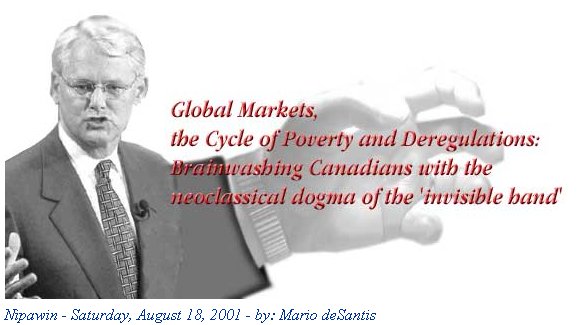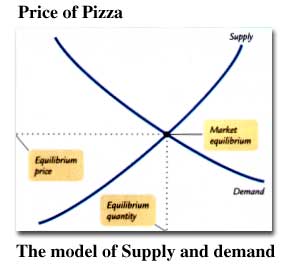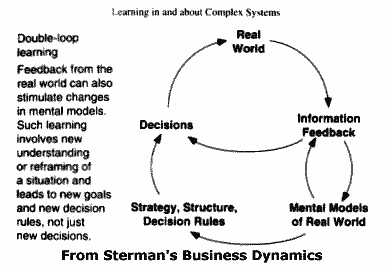Learning Stories
by
Mario deSantis
mariodesantis@hotmail.com
“I am a Canadian, free to speak without fear, free to worship in my own way, free to stand for what I think right, free to oppose what I believe wrong, and free to choose those who shall govern my country.” - -The Rt. Hon. John Diefenbaker, Canadian Bill of Rights, 1960
“The whole judicial system is at issue, it's worth more than one person.”--Serge Kujawa, Saskatchewan Crown Prosecutor, 1991
“The system is not more worth than one person's rights.”--Mario deSantis, 2002
Ensign Stories © Mario deSantis and Ensign
|
|
"Economic rationalists want you to believe that self-interest makes private employees faultlessly efficient and public employees reliably inefficient. It's a stupid mistake" -- Hugh Stretton
We have intelligence and we have emotions and we can be creative, yet our economic gurus are telling us that the 'invisible hand' or the law of demand and supply will secure the optimal allocation of resources. And this is the big lie of neoclassical economics, the lie that the invisible hand will secure the optimal allocation of resources.
We have been witnessing the biggest ever mergers of businesses and I ask if these mergers were managed by the invisible hand. We have a brainwashing campaign financed by the big corporations all around the world trying to inculcate the dogmas of neoclassical economics into the people's minds. Here, in Saskatchewan, this brainwashing campaign is carried forward by the globally owned "The StarPhoenix" in its intermittent series of columns reporting excerpts of the forthcoming book 'Memos to the Prime Minister: What Canada Should Be in the 21st Century.' In one of these newspaper's columns, economist Fred McMahon of the Fraser Institute has stated that "the cycle of poverty is perpetuated through voluntary choice" and I ask if the invisible hand is responsible for the cycle of poverty. We have no invisible hand and we have no free market forces as our global economic system has become an oligopoly dominated by few transnational corporations. We don't have the invisible hand as a guiding principle of our economy, but we have the visible predators' hands of our politicians and corporate friends. We don't have the invisible hand, but we still have the civic relationship of our people, people with values, people with education, people with creativity and emotion, people with Social Capital. And in the name of the neoclassical dogma 'invisible hand' these same people are voluntarily ignored by governments and their corporate friends. Timothy Shire, publisher of Ensign, sent me a copy of the article "B.C. government fires first shots in war on red tape." In this article, I find that the highest priority of the B.C. government is to kill two old regulations for every new one approved. I have no special concern in the governmental effort to reduce the number of regulations, but when I realize that this government has the special ministry of state for deregulation, then something is very wrong. This B.C. government is putting deregulations at the top of its agenda and is forgetting its people. We just ridiculed the Fraser Institute's research contending to increase productivity by reducing the number of regulations, and now we have the B.C. government acting dogmatically on this biased research. I say that the Fraser Institute's research is biased because its recommendation to reduce the number of governmental regulations come straight from the dogma of neoclassical economics to reduce governments and their regulations. And for the record, Adam Smith was tolerant of regulations especially for the purpose of reducing poverty and said that "when the regulation, therefore, is in support of the workman, it is always just and equitable; but it is sometimes otherwise when in favour of the masters" It is a fact that our governments and corporations are alienated from people; it is time to debunk the dogma of the invisible hand of neoclassical economics, and it is time to restore and nurture our Social Capital, the capital emerging from our own civic intelligence. Some references Related social and economic articles published by Ensign The Australian, Ramona Koval's Focus column, commenting on the new book "Economics: A new Introduction" by professor Hugh Stretton, 6th January 2001 http://www.btinternet.com/~pae_news/Koval.htm Global Economic News Post-Autistic Economics Network http://www.btinternet.com/~pae_news/GEN.htm Rediscovering 'The Wealth of Nations', by Alan B. Krueger, ECONOMIC SCENE, The New York Times, August 16, 2001 B.C. government fires first shots in war on red tape, Jim Beatty and Jeremy Sandler, Vancouver Sun, August 16, 2001 http://www.vancouversun.com/newsite/news/649415.html |

 We
just mentioned of a world wide movement to debunk the science of
neoclassical economics. This neoclassical science is based on the
concept that the 'invisible hand' as expressed by free market forces
is the organizing principle of the economy. The invisible hand is
mentioned only once in Adam Smith's 'The Wealth of a Nations' yet
our neoclassical economists have been heralding the invisible hand
as the principle of a free economic system.
We
just mentioned of a world wide movement to debunk the science of
neoclassical economics. This neoclassical science is based on the
concept that the 'invisible hand' as expressed by free market forces
is the organizing principle of the economy. The invisible hand is
mentioned only once in Adam Smith's 'The Wealth of a Nations' yet
our neoclassical economists have been heralding the invisible hand
as the principle of a free economic system.  And
as a simple man as I am, I tell you my readers, that there is no
invisible hand securing the optimal allocation of resources. Best
Buy has just announced the purchase of Future Shop, and I ask if
this purchase was the exercise of the invisible hand or the exercise
to further control the market of digital technology products and
appliances.
And
as a simple man as I am, I tell you my readers, that there is no
invisible hand securing the optimal allocation of resources. Best
Buy has just announced the purchase of Future Shop, and I ask if
this purchase was the exercise of the invisible hand or the exercise
to further control the market of digital technology products and
appliances.